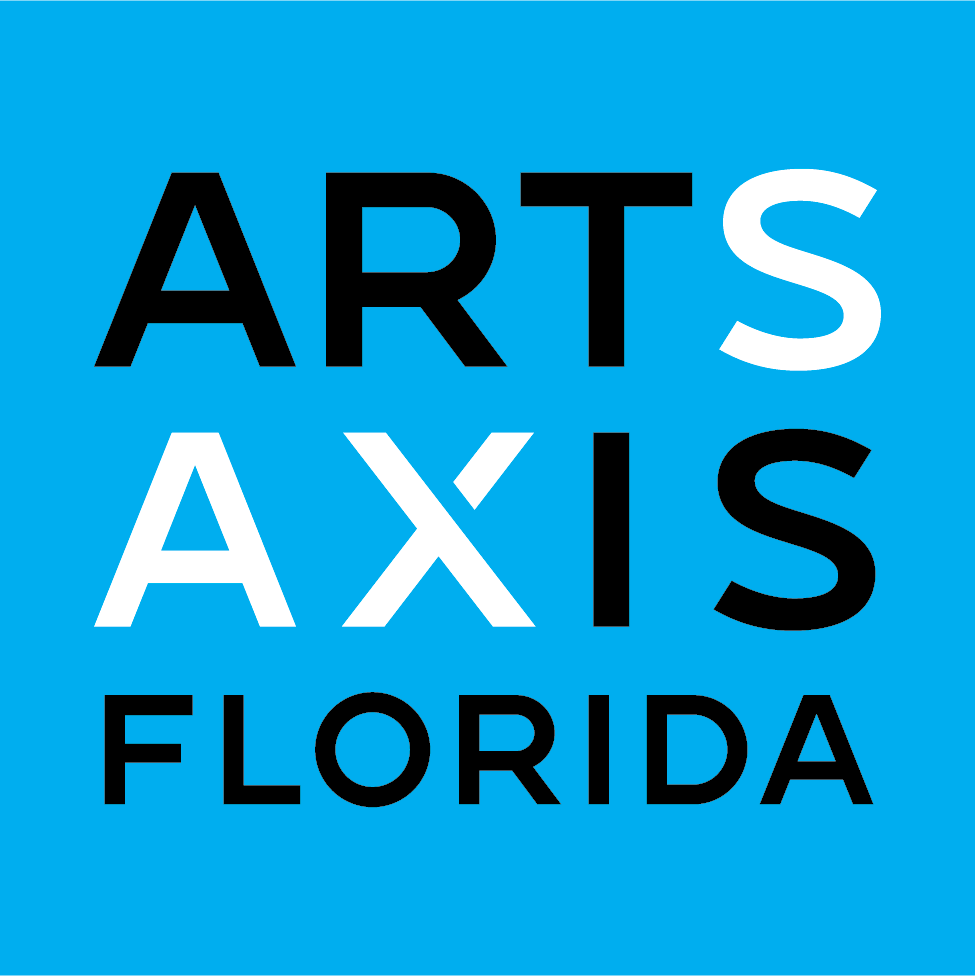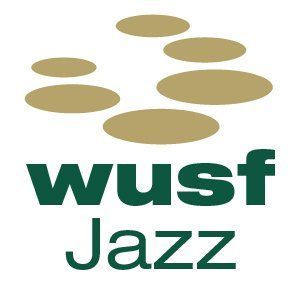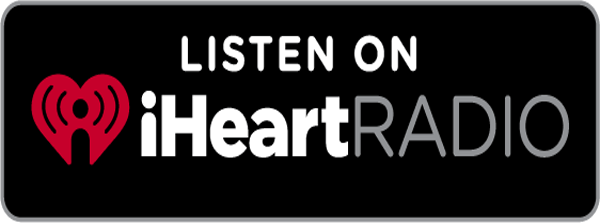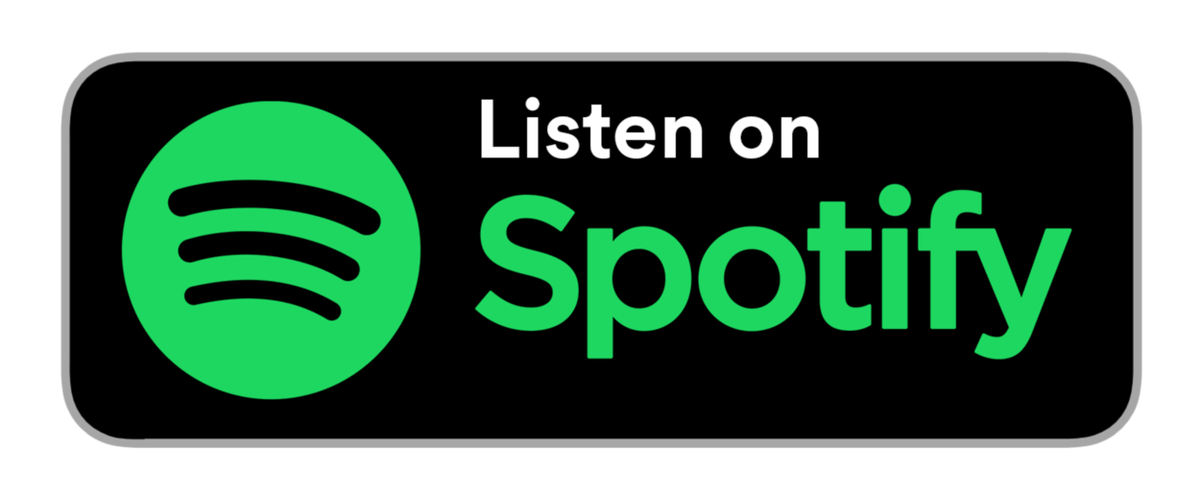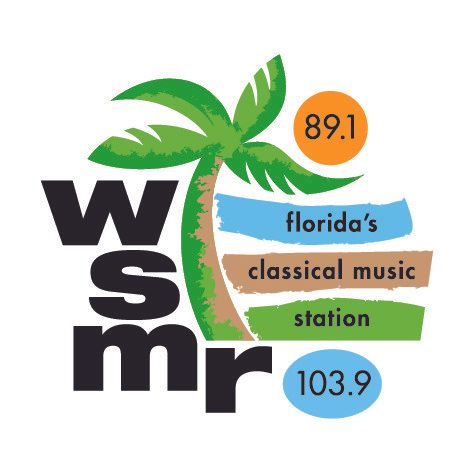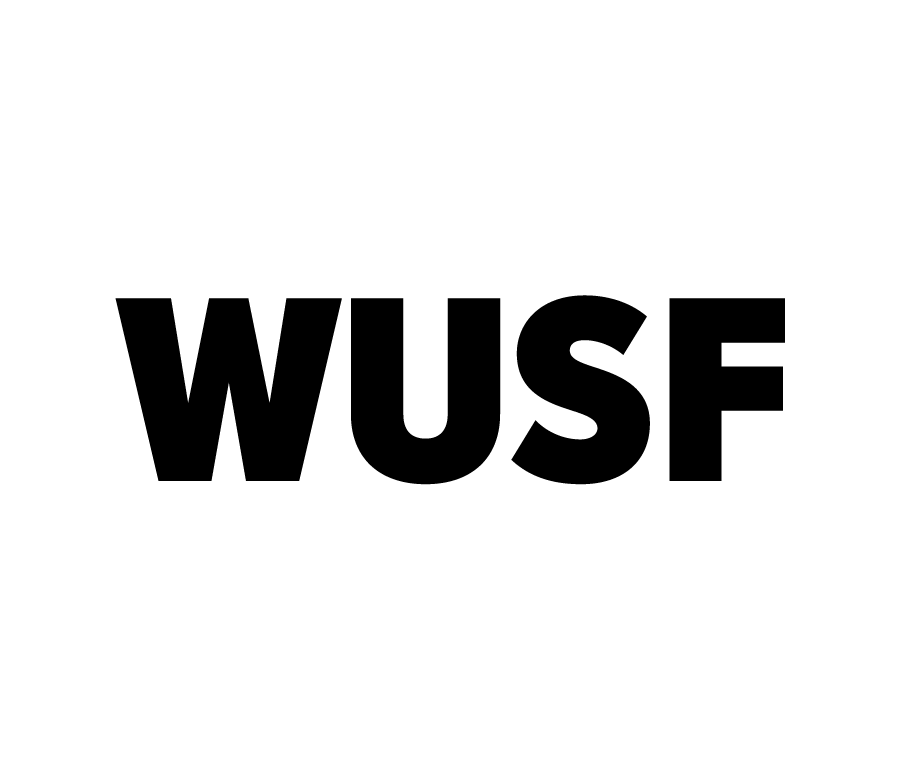00:00:04:16 - 00:00:35:15
BRIANA JACKSON
Hi. Welcome to the Arts Axis Florida podcast. I'm your host, Brianna Jackson. Arts Axis Florida is a comprehensive initiative designed to shine a spotlight on your neighborhood's diverse arts organizations. Each episode will highlight their programs and more importantly, amplify the voices of the people they impact conversations community and connections. That is a value in engaging with your local arts organizations.
00:00:36:09 - 00:00:39:04
BRIANA JACKSON
Arts Axis equals Arts Access.
00:00:45:22 - 00:01:00:18
SPONSOR
Support for Arts Axis Florida comes from the Community Foundation. Of Tampa Bay, championing philanthropy, encouraging and connecting givers to bring lasting good investing in education and economic mobility. Learn more at C F Tampa Bay dot org
00:01:10:04 - 00:01:35:16
BRIANA JACKSON
In this episode of the Arts Axis Florida podcast, we speak to two organizations who are providing educational opportunities for students through music while using their platforms to help combat the challenges surrounding mental health. First up, we are joined by Troy Quinn. The music director and conductor of the Venice Symphony. This organization offers educational programs to both students and adults of all ages.
00:01:36:02 - 00:02:02:23
BRIANA JACKSON
The Venice Symphony also gives a helping hand to those suffering with dementia and Alzheimer's disease. In our final segment, I spoke with Joseph Caulkins, who was the artistic director of the Key Corral. The corral is committed to transforming lives by offering an array of educational opportunities to the community. The Key Corral also has created innovative programs to better serve individuals suffering from dementia, Alzheimer's and Parkinson's disease.
00:02:22:15 - 00:02:25:22
BRIANA JACKSON
Hi, Troy, welcome to the Arts Axis Florida podcast. How are you?
00:02:26:07 - 00:02:28:04
TROY QUINN
Hi, Brianna. I'm well, happy to be here.
00:02:28:09 - 00:02:37:07
BRIANA JACKSON
So, Troy, can you tell us about your directional style and how long you've been with the Venice Symphony right.
00:02:37:08 - 00:02:59:03
TROY QUINN
Well, Brian, I just joined actually in 2018. And 2017 there was a national search. A couple hundred people applied, and I was the lucky guy that they picked at the end. And, you know, I felt an immediate chemistry coming to Venice. I had not heard about it before. I had no connection to the area and I hit it off with the orchestra and the community.
00:02:59:11 - 00:03:39:22
TROY QUINN
I really saw the potential for greatness there and, and what they were trying to do. And it was a match for me and a little bit like dating. You have to figure out if the orchestra works for you and you work for the orchestra. And luckily it did. And, you know, so I brought a lot of energy and a lot of broad thinking, I think in these last two years, especially with the COVID pandemic and trying to branch out virtually and and so high energy, youthful enthusiasm and making it about the music, you know, and it's we have a gem in Venice of the orchestra that not everybody knows yet, but we we're getting there.
00:03:40:16 - 00:03:46:13
BRIANA JACKSON
Right. And what is it about the Venice community that just pulled you in and helped you make your decision to accept?
00:03:47:01 - 00:04:11:17
TROY QUINN
Well, it's very warm and and inviting. You know, I think that was one of the attractive qualities that drew me to the orchestra, not just the players and the musicians, but the audience in the community as well. These people love classical and popular music and thrive for it. And I know no other place in the United States where we were selling 16 or 17 concerts out.
00:04:11:18 - 00:04:42:11
TROY QUINN
I mean, that's unheard of. You know, we actually kind of we could use a little bit bigger concert hall, even though the park is the most gorgeous place. It's just we're selling everything out, which is great. So there's a there's really a thirst for culture and for music and for what we're doing at a high quality level. And I heard many people just in my first two years, you know, say, well, they were happy they didn't have to go fly to New York or go somewhere else in Florida to hear great quality music. So it really is a gem that we have in our state.
00:04:42:23 - 00:04:53:12
BRIANA JACKSON
With the pandemic. A lot of arts organizations have switched to the virtual side of performances. So tell us a little bit more about that with the Venice Symphony.
00:04:54:00 - 00:05:21:06
TROY QUINN
Sure. Well, we took the bold initiative like so many other orchestras, not to just pack it in for the year and say, we'll see you next year. We wanted to provide an at home experience, an intimate Up-Close experience. So we hired Captive Asian Productions, which is a great video and an audio production company. And along with H&M Productions, who did our audio recording, Markus Roots and our concertmaster as well.
00:05:21:15 - 00:05:45:16
TROY QUINN
And those talented gentlemen came up with along with myself, came up with this vision to try to enhance the concert experience and bring it right into your home. And they're all on demand free, which is different from a lot of other orchestras. But we thought it was important to give our subscribers and our public something that they could just latch on to and we've had a great, great amount of success so far.
00:05:46:06 - 00:06:08:04
TROY QUINN
The videos are a little bit different. They're a little bit more what I'd call sort of like a music video not necessarily an MTV approach, but a little quicker cut. Keeps you interested, multiple camera angles, you know? And so we've got wonderful visuals and wonderful high quality audio to go along with that where you don't even have to get out of your pajamas.
00:06:08:07 - 00:06:27:05
TROY QUINN
Time is of the essence, so we don't have a lot of time to rehearse and as a matter of fact, all these concerts, we're just done in a matter of 3 hours. So we rehearsed and recorded them in a very short amount of time. But that's the high level of musicianship that a symphony brings and that our players bring to these types of projects.
00:06:27:09 - 00:06:47:19
TROY QUINN
You know, the first time we got back after seven, eight months of not playing this fall, we did our first virtual recording and we had to postpone the season in March. You know, I think the first chord we played, people were really not taking for granted how wonderful it is to do this as a profession and also to share it with with the world.
00:06:48:12 - 00:07:16:20
TROY QUINN
You know, I think it has a heightened sense of appreciation now that that we were shut down for for many months. So the music making process actually has been more sensitive due to different challenges. And it sort of alerts these types of scenarios that you normally wouldn't have to be so cognizant of. You know, I mean, we take for granted that the musicians play and there's no problems hearing different people in the hall.
00:07:16:20 - 00:07:27:23
TROY QUINN
It's our home turf. But with this, I think everybody's on heightened alert, including myself. And and that makes for exciting music making. You know, that's why there's nothing like live performance.
00:07:29:05 - 00:07:34:16
BRIANA JACKSON
And talking more about being virtual and this is also free, correct?
00:07:35:10 - 00:07:36:02
TROY QUINN
It is indeed.
00:07:36:02 - 00:07:36:14
BRIANA JACKSON
The access?
00:07:36:21 - 00:07:37:08
TROY QUINN
Absolutely free.
00:07:37:19 - 00:07:48:18
BRIANA JACKSON
Wow. So that shows that it's even accessible to maybe communities that don't have access to the Venice Symphony, that this is another way to stay connected and learn more.
00:07:49:04 - 00:08:26:04
TROY QUINN
That's right. Chris Kasten our CEO and I are adamant about making this able to be viewed by all and for equal access to our entire community. And that goes for the entire United States. I think so many folks don't have the exposure to classical music or to any music. And I think that's the difference that can make in a child's life or certainly or anybody's life or certainly one of our big missions at the Venice Symphony is to provide that high quality music performance to enrich everybody's life.
00:08:26:04 - 00:08:39:05
TROY QUINN
So no matter what socioeconomic racial background, it's it's universal. And that's, I think, the most important thing and timely right now that we can focus on.
00:08:39:22 - 00:08:50:09
BRIANA JACKSON
The Venice Symphony is the only orchestra in South Sarasota County being that, what are some of the challenges as well as the triumphs of this being the only one?
00:08:51:19 - 00:09:16:08
TROY QUINN
Well, you know, we have, of course, some wonderful orchestras in our area. But but we are the the mainstay of of our South Sarasota County and our geography. You know the Venice Symphony has been around since 1974, Brianna. Hardly. Haines was the first music director. He was one of the high school music public teachers. And and so we've been around we're coming up on 50 years.
00:09:16:09 - 00:09:40:10
TROY QUINN
In three years it'll be our 50th. So we have been around for a while, but we haven't necessarily been on everybody's radar. So that's been a challenge because when I first got to Venice some people didn't even know Venice had a symphony, you know, even though it's not that big of a town. And so that's been a challenge to just get our mission and you know, get our exposure out there.
00:09:40:10 - 00:10:09:09
TROY QUINN
That has happened greatly with the addition of, you know, I think a new music director coming in and and certainly our new CEO, Chris Carson, has been there for a few years now before me and and Dana Kimball's are artistic operations manager. The leadership now is in place. And so our profile is getting bigger. And we certainly have wonderful, loyal supporters and donors that have just dedicated their life to the symphony.
00:10:09:09 - 00:10:26:15
TROY QUINN
And they really want everybody to know about it. And I think it is a diamond in the rough. I really think that this is has the potential to be the best regional orchestra in the state of Florida. You know, we are not a full time orchestra, so it's not a full time job for many of our musicians. We don't play every single day.
00:10:26:15 - 00:10:54:03
TROY QUINN
We do one concert a month, approximately eight concerts during the concert season. And and sometimes we do two or three in the weekend. So I think the the challenge certainly is to expand our reach. The advantage, of course, is we don't have too much competition with orchestras our size, you know, and certainly we're doing things a little differently here just with repertoire and with all our outreach concerts.
00:10:54:03 - 00:11:02:03
TROY QUINN
And so many of our patrons are, I think, enjoying the renaissance of the Vienna Symphony in the last couple of years.
00:11:02:10 - 00:11:08:14
BRIANA JACKSON
Tell us more about some of the programs you offer for the public as well as children.
00:11:09:18 - 00:11:33:18
TROY QUINN
Yeah, well, you know, music education and particularly youth education is near and dear to my heart as it is our organization we have several programs actually at the Venice Symphony, and we started our youth orchestra just a couple of years ago. And so that gives an opportunity for music lovers of all ages who are who are very young to high school age to come in and play.
00:11:33:18 - 00:11:58:07
TROY QUINN
And we have our strings program right now. We started. So we're trying to expand to have an entire youth orchestra, the 50 to 60 youth orchestra. And so know the model has been set. Some of the other youth orchestras that I've worked with in the past and trying to demonstrate those opportunities and give those opportunities to to our students, we've got a very solid start and a solid core.
00:11:58:14 - 00:12:23:21
TROY QUINN
We also have our symphony in the schools program, our cities program, and that's, that's in collaboration with the public schools that give lessons, music tutorials during the semester. And they culminate in a performance that they go to at the Venice Symphony. So this is for fourth, fifth graders aged and, and they come in and they play on the recorders.
00:12:23:21 - 00:12:40:23
TROY QUINN
What they've learned during the year and kind of it's kind of fun to have, you know, the only time I would say it's fun to have a thousand recorders going on at the same time playing Copeland or something like that. But it's they get really into it and then they can see, you know, the professionals on the orchestra on the stage.
00:12:40:23 - 00:13:02:18
TROY QUINN
And I think to kind of relate to that, that's, you know, sort of how I got started myself by seeing people that I thought that was the coolest job in the world. You know, how fun to make music like that. So that's important. We also have our summer music camp. We have a little bit of adult music education, too, or for a nursing home, a music therapy session.
00:13:03:02 - 00:13:06:22
TROY QUINN
We're able to do that as well. So we keep very busy.
00:13:07:17 - 00:13:10:17
BRIANA JACKSON
Tell us more about the music therapy and how that works.
00:13:11:09 - 00:13:40:08
TROY QUINN
Yeah, well, this is sort of a a newer venture for us, you know, and this is of course, made possible through some grant money going into some of these nursing homes and assisted living homes and actually just playing with some of these folks, getting them in tune with rhythm and melody. And some of these folks have potentially long term health problems, dementia, Alzheimer's.
00:13:40:08 - 00:14:03:06
TROY QUINN
And so, you know, the studies have shown, of course, across the last few decades now how those things can unlock some of the neurons to actually remember things. And so you know, we have a lot of requests for that and for the elderly to come in and play. And, you know, and I've spoken to to a few of these places as well of my time.
00:14:03:16 - 00:14:33:01
TROY QUINN
And, you know, when you start playing some of these older tunes that they remember from, let's say, the World War two days growing up in the fifties and sixties, it just see the you know, the the magic on their face. And so it could be anything it could be Beethoven's Symphony that they remembered seeing with their parents and, you know, back in when they were a child, you know, there's so much of music is very associated with specific events.
00:14:33:01 - 00:14:55:08
TROY QUINN
So, you know, I can still remember being ten years old and going to see John Williams at the Hollywood Bowl and I remembered they were playing the Raiders march from Indiana Jones. And I just remembered how that started. And from there, I was just like, you know, I associate that with the Hollywood Bowl and with being a musician and thought that was the coolest thing.
00:14:55:19 - 00:15:21:01
TROY QUINN
So it takes me back to a to a happy place. I think that's the go to for our our music therapy and for music in general. You know, we're may not be saving somebody's soul like a doctor or their heart, but I think in some ways people do need that. And somebody is going to come into the concert hall weary, tired with personal problems. And it's our job to make them forget about that for 2 hours.
00:15:21:20 - 00:15:33:18
BRIANA JACKSON
I just love what you said about the music therapy and how it could unlock a memory for someone who lived during World War Two or, you know, a childhood memory and just the power of tapping into that.
00:15:34:12 - 00:15:38:04
TROY QUINN
Absolutely. And, you know, that's you can't put a price tag on that.
00:15:38:06 - 00:15:48:16
BRIANA JACKSON
Troy, thank you so much for taking the time out to talk with us more about the Venice Symphony and just everything you're doing for the community. We really appreciate your time today.
00:15:49:06 - 00:15:51:01
TROY QUINN
It's been my pleasure. Thank you so much.
00:16:02:23 - 00:16:17:11
BRIANA JACKSON
By implementing educational programs and other opportunities, the Venice Symphony allows individuals from all walks of life to experience the joys and pleasures of classical music. More information on the Venice Symphony can be found in our show notes.
00:16:20:20 - 00:16:24:11
BRIANA JACKSON
Hi, Joseph. Welcome to the Arts Axis Florida podcast. How are you?
00:16:24:21 - 00:16:26:18
JOSEPH CAULKINS
I'm great, Brianna. It's nice to be with you.
00:16:27:01 - 00:16:30:23
BRIANA JACKSON
Can you tell us about the Key Chorale and the choir's mission?
00:16:32:04 - 00:17:00:23
JOSEPH CAULKINS
Well, we are a symphonic sized chorus or about 120 members, and we are dedicated to transforming lives through innovative programing, artistic excellence, educational outreach and service to the community. And it's a mission that really encapsulates all that we do from presenting dynamic and unique programing to our choirs. For those living with Parkinson's disease, to our choirs that we work with that are dealing with Alzheimer's and dementia, to our robust educational outreach program.
00:17:01:08 - 00:17:22:11
JOSEPH CAULKINS
And last year, I was recognized nationally by Chorus America, as we were presented the 2020 award for education, community outreach. So it's we really it's an important mission to us. And I think everyone from the singers to the board, members of the committee, members to myself, we're just all in with using music to transform lives. I think that's what it's all about.
00:17:22:18 - 00:17:27:01
BRIANA JACKSON
Education and community seem to be the driving force behind the Key Chorale.
00:17:27:15 - 00:17:49:02
JOSEPH CAULKINS
It really is. And I think that's because years ago I said to myself before we were really thinking about education community. I said to myself, you know, Key Chorale didn't exist anymore. Who would notice and how would the community be affected? And I really reflected on that. I said to myself, you know, we did some really wonderful performances but would our community really miss it?
00:17:49:02 - 00:18:08:20
JOSEPH CAULKINS
Would there be a void? And that really kind of, I think, supercharged us to say, how do we how do we look at how we create music and how do we make a difference and so we really put a lot of efforts into our educational programing, our community outreach. And now I think if I you know, probably ten years later when I asked that question, you know, how would our community be impacted if Key Chorale wasn't there?
00:18:09:06 - 00:18:23:11
JOSEPH CAULKINS
I feel a lot better about that answer because I know there's a lot of people that our various programs affect in a positive way. And without that music in their lives, there would be a real void. So I think that's the real, I guess, the motivation behind that mission.
00:18:24:10 - 00:18:31:22
BRIANA JACKSON
Tell us a little bit more about how the Key Chorale has been involved with mental health and wellness in our community.
00:18:32:23 - 00:18:59:14
JOSEPH CAULKINS
Well, we've been in I remember the first board meeting when I when I pitched this idea that we might be starting a choir for those living with Parkinson's. They looked at me like a fall on my head because I think we just they just couldn't grasp how our symphonic chorus could be involved in health and wellness. And, you know, now that we've you know, all these years have gone by, we've really found that these outreach choirs have an incredible impact on the people.
00:18:59:15 - 00:19:27:00
JOSEPH CAULKINS
And we started off Key Chorale in 2012 and it's in partnership with the Neuro Challenge Foundation for Parkinson's. And at the time we started that there were probably less than 20 of these choirs around the world. And the idea was so much of what you do to to sing well and being a choir is a lot of the things that if you're living with Parkinson's are a lot of the things that you're getting in therapy.
00:19:27:09 - 00:20:06:18
JOSEPH CAULKINS
And so I met with the neuro the neuroscientists there and kind of learned about what I know about vocal pedagogy and how do you how do you take that knowledge of vocal pedagogy and create vocal eases and exercises. And in a program that benefits those living with Parkinson's and you know, we work on breathing techniques and singing, but the great thing is they're they're getting therapy, which is really meaningful and valuable, but yet it just feels like fun and so, you know, that's a it's been a really one of the most ennobling things that I do because it's just it's you get to see music make a difference in people's lives in real time.
00:20:06:18 - 00:20:26:12
JOSEPH CAULKINS
It's not this abstract thing. You can see it on their faces and in the ability they have to come together to be together socially. And, you know, it's not like it's a group of singers. It's a group of people who just want to come together. So we have, you know, people who have no idea about anything about, you know, how to read music or any of those things.
00:20:26:20 - 00:20:48:13
JOSEPH CAULKINS
But it's it's all about the effort and the participation. It's not about the performance. And it's amazing that all these years later, it's the most successful of the other programs that the Challenge Foundation has or offers. And, and back in 2019, we started a choir for those living with memory loss and their caregivers and in in both choirs.
00:20:48:13 - 00:21:07:16
JOSEPH CAULKINS
What I think is great is it's not just the person with Parkinson's, it's it's the person living with Parkinson's and their caregiver doing something together. And Where Are My Keys, Chorale? It's someone with Alzheimer and their caregiver doing something together in real time. And you know, when we started the Where Are My Keys Chorale? again it was kind of like a leap of faith.
00:21:08:02 - 00:21:39:14
JOSEPH CAULKINS
But you know, I know from the science and also just personal experience that there's so many wonderful therapeutic benefits of singing and, you know, the amount of people that we can reach through these outreach choirs as really it's transformed a lot of lives but quite frankly, it's transformed ours, too, because, you know, it really is such a powerful thing, you know, to watch our outreach choirs and how much joy they bring to their music making. And it's just it puts a smile on your heart for certain.
00:21:40:11 - 00:21:57:19
BRIANA JACKSON
Well, it's certainly putting a smile on mine and just the OFF-KEY Chorale and Where Are My Keys? What I love about it is it's a form of therapy, but it doesn't have to feel like therapy. You're there making connections building relationships, and like you said, having fun. I think that's the beautiful thing about it.
00:21:58:14 - 00:22:16:09
JOSEPH CAULKINS
Yeah. And I think in all of those outreach choirs that, you know, the three words you'll never hear me say are Parkinson's. Alzheimer's or dementia. They're just singers. And we can just come together and forget whatever are the things that prevent us from doing something and and and celebrate and be joyful about the things we can do.
00:22:16:22 - 00:22:25:07
BRIANA JACKSON
Absolutely. And with that, it's also very inclusive. You are including these groups of people who probably think they wouldn't be able to participate
00:22:25:07 - 00:22:42:00
JOSEPH CAULKINS
For certain. And it's really it's it's just beautiful to see. And I think we really encourage people just to just to come and experience and I had one person, OFF-KEY Chorale, and he's come to me says Joe says, you know, I think I'm going to have to drop out of the choir. And I said, well, why it? Why do you want to drop out of the choir?
00:22:42:00 - 00:22:57:08
JOSEPH CAULKINS
And he said, Well, I just feel like I'm holding everybody back. And I said, I said, Jeff, I said, Look around. I said, This is a motley crew. We're just here having a good time. I said, Are you having a great time? He said, Oh, I love it. I said, Well, then you don't need to quit. He said, I don't have to quit because I'm bad.
00:22:57:08 - 00:23:07:08
JOSEPH CAULKINS
And I said, No, you just need to participate and enjoy it. And have a good time and know that you're as important to the to the to the organization as the person next to you.
00:23:07:19 - 00:23:11:09
BRIANA JACKSON
What are some of the educational opportunities that the Key Chorale offers.
00:23:12:03 - 00:23:33:15
JOSEPH CAULKINS
Well, we have about essentially three programs that we offer. The one that's the longest standing I think we started in 2008 is our Tomorrows Voices today. Which is our high school choral festival, and we work in partnership with the six Sarasota County Public Schools. And so three, every year we work with three of those schools during this festival.
00:23:33:21 - 00:23:57:20
JOSEPH CAULKINS
And it's a it's unique because it's not just a high school choral festival. It's an intergenerational festival because our chorale has everything from high school students to octogenarians. So we have this whole wonderful mentorship that happens between our our more experienced singers and our high school singers. And I go into the public schools and I work with the students and their teachers a couple of times in advance of this.
00:23:58:03 - 00:24:23:09
JOSEPH CAULKINS
And then we come together as one large choir and it's generally about 200 people that come together from all ages. And then we present a concert and allows the high school students to get a glimpse of what music making at the professional level is. And it's really become a great way. I feel blessed that I can I can essentially work with every high school choral student at least once before they graduate.
00:24:23:18 - 00:24:45:18
JOSEPH CAULKINS
And then the other program we have, which kind of was an outgrowth of that, is our Student Scholar program, and it's designed to prepare gifted and junior gifted juniors and seniors who plan to pursue music after high school. And they go through a quite a long process. They have to be recommended by their teacher. They have to go through a personal interview and an audition.
00:24:45:18 - 00:25:07:13
JOSEPH CAULKINS
And then we select our student scholars for the season and they they have a lot of performance opportunities with this. They get to participate in masterclasses with guest vocalists that we bring in from all over the country. And each student is paired with a mentor and a voice instructor. And our key chorale voice instructors give each of those students, scholars eight voice lessons.
00:25:08:00 - 00:25:27:16
JOSEPH CAULKINS
Most of these students, even though they're very excel, accelerated in the music, have not had voice lessons. So we work on technique. We help prepare them for their college auditions and all these experiences, all the things we do, we do at no cost to the to the student scholars. So this is funded through our generous donors and sponsors.
00:25:27:16 - 00:25:43:17
JOSEPH CAULKINS
So it's a it's really a great program and it's really what when we created it, I thought of all the things I wished I would have had before I went to music school. And that's what we kind of created this program around. And then the other piece that we've been working on is with a group called the This Women Academy.
00:25:44:02 - 00:26:11:07
JOSEPH CAULKINS
We've been doing this since 2018, and we've been bringing music to BMA, which is a charter school for at risk K through five boys, and they don't have any music program at all. So Key Chorale has filled in that gap to be sure that each and every one of these nearly 100 boys has access to music and musical experiences because you know, K through five, it's such a developmental time for them and, and because they're at risk boys.
00:26:11:07 - 00:26:31:23
JOSEPH CAULKINS
I think it's one of those things, it's, it's so important for us to make sure that they have touch points that are music related. You know, you don't, we don't really it's not that we want them to become singers or orchestra members or anything like that. We just want to make sure they have the musical experiences so that their world is, is, is really expanded.
00:26:31:23 - 00:26:42:17
JOSEPH CAULKINS
And so we're really grateful to do that. It's been a wonderful partnership. They are incredibly gifted and talented boys that just need some some loving hands and music.
00:26:43:05 - 00:26:49:12
BRIANA JACKSON
That's great. And it truly gives them an outlet. And who knows? Maybe they'll discover a talent they didn't know they had.
00:26:49:18 - 00:27:19:00
JOSEPH CAULKINS
Exactly. It's all about access to the arts. And I think with at risk populations, it's really behooves us all to find ways to make sure that they have those touchpoints, those experiences. Because, you know, I know before we came to the came and perform for them and that kind of an inner interactive musical experience with them, I doubt that many of those kids had heard, you know, a professional choir singing, you know, classical music.
00:27:19:00 - 00:27:29:04
JOSEPH CAULKINS
So, you know, it's it's just an idea, just a way of of giving them something of meaning. And just expanding their horizons, which I think is what's so great with that program.
00:27:29:16 - 00:27:41:08
BRIANA JACKSON
Well, Joseph, thank you so much for your time today. This was such a great conversation. And just thank you for what you're doing in our community. We really appreciate it. And it really does mean a lot and leaves an impact.
00:27:41:22 - 00:27:44:21
JOSEPH CAULKINS
Absolutely. It's wonderful when your passion is also your work.
00:27:49:02 - 00:28:16:00
BRIANA JACKSON
It's awesome to learn about the many different ways these organizations are using the power of music to help our local communities. Educating both children and adults and the wonders of music really allows an outlet for expression. And not only that, but they're a perfect examples on how the arts can be used to better a person's well-being. Thank you so much for joining us and tune in next time for more conversations within the arts.
00:28:17:14 - 00:28:38:14
BRIANA JACKSON
I'm Briana Jackson, and you have been listening to the Arts Axis Florida podcast. This show is a product of WUSF Public Media with the help of our founding sponsor, the Community Foundation of Tampa Bay. Our show is produced by Aaliyah Moffitt, Chandler Balkcom and Leslie Laney. A special thanks to our editor, Scott Walker and our entire engineering team.
00:28:39:10 - 00:28:59:09
BRIANA JACKSON
You can find out more information, performances and other content that our local arts groups are creating by following us on Facebook or Instagram and visiting our website Arts Axis Fl dot org. That's ARTS A X I S F L DOT ORG copyright 2021 WUSF Public Media.
